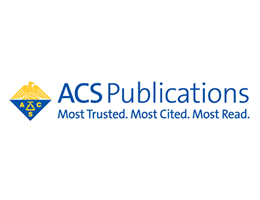FOR IMMEDIATE RELEASE
ACS News Service Weekly PressPac: February 09, 2022
Recent papers in ACS Bio & Med Chem Au
ACS Bio & Med Chem Au is a member of the ACS Au family of journals. These publications are open access, and each one focuses on a specific field relevant to chemistry. Here, we take a look at a few recent papers from ACS Bio & Med Chem Au, which is a broad scope journal that publishes short letters, comprehensive articles, reviews and perspectives in all aspects of biological and medicinal chemistry.
“Molecular Aspects of Insulin Aggregation and Various Therapeutic Interventions”
ACS Bio & Med Chem Au
Jan. 25, 2022
Insulin can aggregate, or clump, during its production and transport. It can also do this in patients’ bodies at places where they have injected the hormone repeatedly. Protein clumping can lead to amyloid formation and various side effects, such as fatigue, numbness and organ failure. These authors review what scientists currently know about this phenomenon and describe strategies that could help prevent it.
“Amphiphilic Membrane Environments Regulate Enzymatic Behaviors of Salmonella Outer Membrane Protease”
ACS Bio & Med Chem Au
Dec. 14, 2021
It’s well known that integral membrane proteins are exposed to both aqueous and oily environments, but how do these “amphiphilic” surroundings affect the flexibility and function of a protein? That’s what these researchers wanted to find out for the proteolytic PgtE protein of Salmonella. They were surprised to observe that the protein didn’t react right away to various substrates; instead, it experienced a lag phase under certain conditions.
“Pre-Existing Oxidative Stress Creates a Docking-Ready Conformation of the SARS-CoV-2 Receptor-Binding Domain”
ACS Bio & Med Chem Au
Nov. 23, 2021
Using molecular dynamics simulations, these authors examined the potential role of oxidative stress in the binding of the SARS-CoV-2 spike protein and the human ACE2 receptor. They say that previous studies have shown that oxidative stress probably plays a role in COVID-19 infection, but it was unclear how. The team shows that oxidative stress can trigger the formation of disulfide bonds, making the spike protein assume a structure that is ready to bind to the receptor. This information could help researchers develop better therapeutics.
“Iso-α-acids in Nonalcoholic and Alcoholic Beer Stimulate Growth of Neuron-like SH-SY5Y Cells and Neuroepithelial Stem Cells”
ACS Bio & Med Chem Au
Sept. 7, 2021
Compounds in beer have been shown to have neuroprotective effects. But these researchers wondered whether the same was true of non-alcoholic beer. In this study, the researchers found that nonalcoholic beer can stimulate the expansion of neural stem cells in vitro, and that iso-α-acids, which give beer its bitter taste, could be responsible.
###
The American Chemical Society (ACS) is a nonprofit organization chartered by the U.S. Congress. ACS’ mission is to advance the broader chemistry enterprise and its practitioners for the benefit of Earth and all its people. The Society is a global leader in promoting excellence in science education and providing access to chemistry-related information and research through its multiple research solutions, peer-reviewed journals, scientific conferences, eBooks and weekly news periodical Chemical & Engineering News. ACS journals are among the most cited, most trusted and most read within the scientific literature; however, ACS itself does not conduct chemical research. As a leader in scientific information solutions, its CAS division partners with global innovators to accelerate breakthroughs by curating, connecting and analyzing the world’s scientific knowledge. ACS’ main offices are in Washington, D.C., and Columbus, Ohio.
To automatically receive press releases from the American Chemical Society, contact newsroom@acs.org.
Note: ACS does not conduct research, but publishes and publicizes peer-reviewed scientific studies.
Media Contact
ACS Newsroom
newsroom@acs.org


